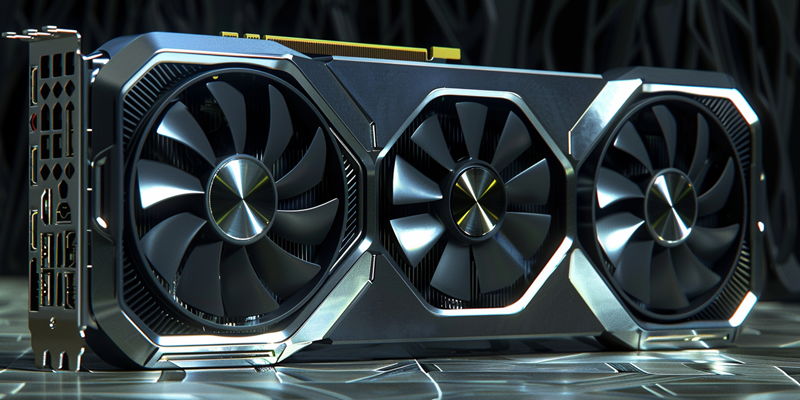Nvidia’s latest venture into accelerating the capabilities of Microsoft’s Copilot+ PCs positions the tech titan at the vanguard of the computing revolution. By wielding the power of their RTX GPUs, Nvidia aims to enrich these AI-driven laptops to appeal to a wide variety of users, from hardcore gamers to productivity-focused professionals. This initiative showcases a pivotal moment where AI processing and high-end graphics are not just supplemental features but core components of the modern laptop.
The AI Performance Leap
Advancing Local AI Workloads
Nvidia’s integration of its heralded RTX GPUs into Windows 11 laptops signals an era where local AI processing is not only possible but also highly efficient. With the introduction of the R555 Game Ready Driver, the company promises a performance escalation that could change how we understand computing. Users can expect up to a threefold increase in the speed of running AI models, which translates to significant benefits for anyone working with complex datasets or developing intricate AI systems.
This leap forward in performance mirrors the ambitious goals of Microsoft to augment the AI capabilities within its operating system. By empowering Windows 11 laptops with the processing might to handle demanding AI tasks, users will no longer be shackled by the constraints of inadequate hardware. Developers, in particular, stand to gain as they can now train advanced AI models directly on their personal computers without resorting to external resources.
Nvidia RTX: A Game-Changer for Developers
The Nvidia RTX GPUs, already renowned for their prowess in rendering stunning visual content, are now poised to become essential tools for AI development. This move aligns perfectly with the anticipated needs of future software, where AI and machine learning become ubiquitous. Developers who harness the accelerated performance provided by the Nvidia RTX series will experience a more seamless and efficient development process, effectively shortening the time from concept to deployment.
Moreover, the integration of Nvidia GPUs extends beyond improved performance. It is about unlocking potential and enabling innovation. By reducing the friction that developers encounter during the training of AI models, they can experiment more boldly and push the boundaries of what is possible. The new R555 driver is more than just an upgrade; it is an invitation for developers to dream bigger and realize those dreams through the tangible performance gains provided by Nvidia’s technology.
Enabling Next-Generation Laptops
The Symbiosis of AI and Graphics
In aligning with Microsoft’s Copilot+ machines, Nvidia’s RTX GPUs not only optimize AI operations but also elevate graphical capabilities, offering a one-two punch of performance. This progression signifies the approach of a future where high-fidelity graphics and sophisticated AI are not separate entities but unified forces that operate in concert within our laptops. Such an amalgamation will herald a new wave of applications and user experiences that could redefine personal computing.
With this partnership, Nvidia isn’t only making a statement about the power of its hardware; it’s championing a vision where AI is seamlessly embedded into every aspect of our digital lives. The RTX GPUs are not simply engines for gaming or visual creation; they are becoming the backbone of an AI-infused reality, where every computational task is enhanced by smart, efficient algorithms.
The Allure of Power-Efficient Systems
Nvidia is breaking new ground with its innovative move to supercharge Microsoft’s Copilot+ PCs, spearheading a transformation in computing. By leveraging their formidable RTX GPUs, they’re amplifying the capabilities of these AI-powered computers, making them more attractive to a breadth of users. Whether it’s the avid gamer seeking immersive experiences or the diligent professional craving efficiency, these laptops are built to cater to their needs. This strategic venture marks a defining shift in the tech landscape, where AI processing and elite graphics merge to become fundamental elements of contemporary laptops. Nvidia’s foray into enhancing Copilot+ PCs with its high-performance graphics isn’t merely an upgrade but a turning point, signaling the future direction of laptop technology.

